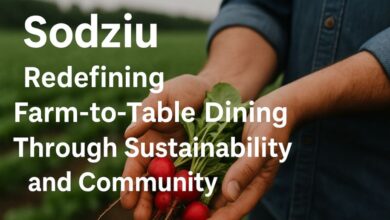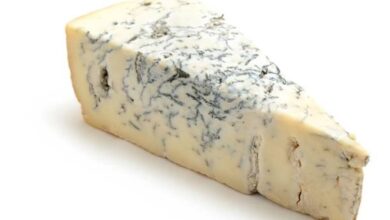Mannacote: The Versatile Wonder from Kitchen to Construction

In the ever-evolving world of innovation, few substances bridge the gap between food, health, agriculture, and industrial design like Mannacote. Often misunderstood or mistaken for just a culinary dish, Mannacote is, in fact, a broad term encompassing a range of uses—from delicious baked pasta recipes to eco-friendly seed coatings and high-performance architectural applications. This article explores the many faces of Mannacote, showcasing its wide-reaching impact across diverse industries.
Culinary Delight: Mannacote as an Italian-American Classic
What Is Culinary Mannacote?
In many kitchens, especially in Italian-American households, “Mannacote” is a variation or colloquial spelling of Manicotti, a traditional pasta dish. These are large pasta tubes stuffed with cheese, meat, and herbs, baked in rich tomato sauce and often topped with mozzarella or parmesan.
Common Ingredients:
-
Ricotta or cottage cheese
-
Mozzarella, Parmesan
-
Ground beef or sausage
-
Marinara sauce
-
Garlic, parsley, basil
Nutritional Value:
While rich in flavor, the dish also provides:
-
Protein from meat and cheese
-
Calcium from dairy
-
Carbohydrates from pasta
-
Lycopene from tomatoes
This version of Mannacote remains a family favorite, especially in festive and holiday meals, symbolizing comfort and tradition.
Natural Blend for Wellness and Lifestyle
Mannacote as a Wellness Product
Outside the kitchen, Mannacote is also the name for a natural compound blend used in:
-
Skincare
-
Pet nutrition
-
Smoothies and supplements
-
Organic gardening
Derived from plant-based ingredients like oat extracts, botanical oils, or natural waxes, Mannacote products promote holistic wellness and sustainability.
Common Benefits:
-
Gentle on sensitive skin
-
Rich in vitamins and fatty acids
-
Enhances pet coat and digestive health
-
Biodegradable and chemical-free
Whether applied topically or consumed, this Mannacote aims to align with modern trends in eco-conscious living and natural healing.
Agricultural Revolution: Mannacote as a Biodegradable Coating
What is Agricultural Mannacote?
In the agricultural industry, Mannacote refers to a biodegradable coating made from natural polysaccharides, oils, and waxes. It is used to:
-
Coat seeds before planting
-
Extend the shelf life of fruits and vegetables
-
Protect crops without synthetic chemicals
This usage aligns with sustainable farming initiatives, reducing chemical runoff and promoting soil health.
Benefits for Farmers:
-
Improved seed germination rates
-
Less reliance on synthetic fertilizers
-
Reduction in spoilage during transportation
-
Natural pest deterrent
For organic farmers and eco-farms, Mannacote has become a staple in building resilient, green food systems.
Industrial Application: Mannacote as a Smart Coating Material
Mannacote in Architecture and Design
In construction and design industries, Mannacote is being used as a high-performance coating material. It often includes nanotechnology or smart polymers that offer:
-
Water resistance
-
UV protection
-
Anti-microbial surfaces
-
Chemical durability
Where It’s Used:
-
Concrete flooring
-
Metal piping
-
Bathroom/kitchen tiles
-
Outdoor architectural structures
Mannacote coatings are praised for their sleek finish and sustainable properties, often replacing petroleum-based paints and finishes.
The Science Behind Mannacote
Each form of Mannacote, whether for food or industry, is rooted in the principle of multifunctional natural utility. Most variations involve a base derived from:
-
Natural polymers (e.g., cellulose, starch)
-
Plant oils (e.g., flaxseed, coconut)
-
Essential minerals (e.g., zinc oxide in skincare)
What unifies all forms is the intention to blend nature and technology for functional, safe, and eco-conscious results.
Global Market and Consumer Appeal
Mannacote’s cross-functional utility has made it a hot product in various industries. In wellness, it appeals to natural product users; in agriculture, to sustainable farmers; and in construction, to modern architects.
Key Markets:
-
North America: Food and wellness
-
Europe: Industrial coatings and eco-agriculture
-
Asia-Pacific: Rapid expansion in skincare and farming
The product’s appeal lies in its adaptability and environmentally friendly credentials—fitting seamlessly into growing consumer trends.
Challenges and Future Potential
Challenges:
-
Confusion due to varied definitions
-
Market fragmentation
-
Lack of standardized regulation
Future Potential:
-
Expansion into biotechnology (biodegradable packaging)
-
Further development as a cosmetic base
-
Wider adoption in sustainable farming grants
As innovation continues, Mannacote is poised to become a common name in households, farms, and factories alike.
Conclusion: A True Multi-Purpose Marvel
From rich pasta dishes served at Sunday dinners to eco-friendly coatings preserving crops and buildings, Mannacote represents the modern age’s demand for functionality, sustainability, and versatility. Whether you’re a chef, farmer, wellness advocate, or architect, there’s a version of Mannacote tailored to your needs.
What is Mannacote?
Mannacote is a versatile term used to describe various products, including a pasta dish, a natural wellness blend, an agricultural seed coating, and an industrial surface coating.
Is Mannacote a food item or a product?
It can be both. In culinary terms, it’s a baked pasta dish similar to manicotti. In other contexts, it’s a plant-based or polymer compound used in wellness, agriculture, and industry.
What are the ingredients in Mannacote pasta?
Typical ingredients include ricotta cheese, mozzarella, ground meat or sausage, marinara sauce, and pasta shells, baked together into a comforting dish.
How is Mannacote used in skincare or wellness?
Mannacote wellness blends often contain botanical extracts, essential oils, or plant-based waxes that hydrate the skin and support natural healing.
How does Mannacote help in agriculture?
As a biodegradable coating, Mannacote improves seed germination, protects produce, and reduces chemical use in farming, supporting sustainable agriculture.
What makes Mannacote eco-friendly?
Most forms of Mannacote use natural, renewable, and biodegradable ingredients, making them safer for the environment across multiple industries.
Is Mannacote safe for pets?
Yes, some wellness-grade Mannacote formulations are used in pet nutrition to promote healthy coats and digestion, though product-specific labeling should always be checked.
Can Mannacote be used on construction materials?
Yes, in industrial applications, Mannacote is a high-performance coating used to protect floors, walls, and outdoor surfaces from moisture, UV rays, and microbes.
Where can I buy Mannacote-based products?
Mannacote products are available across sectors: food items in grocery stores, skincare in wellness shops, and coatings or agricultural versions from industrial or farming suppliers.
Why is Mannacote gaining popularity?
Its multifunctional nature, eco-friendliness, and ability to serve health, food, farming, and design needs make Mannacote an increasingly valuable and in-demand solution.
At Trend Loop 360, we spotlight transformative innovations like Mannacote—solutions that bridge nature and progress in exciting new ways.
For more Food & Drinks related articles visit Food & Drinks section.


